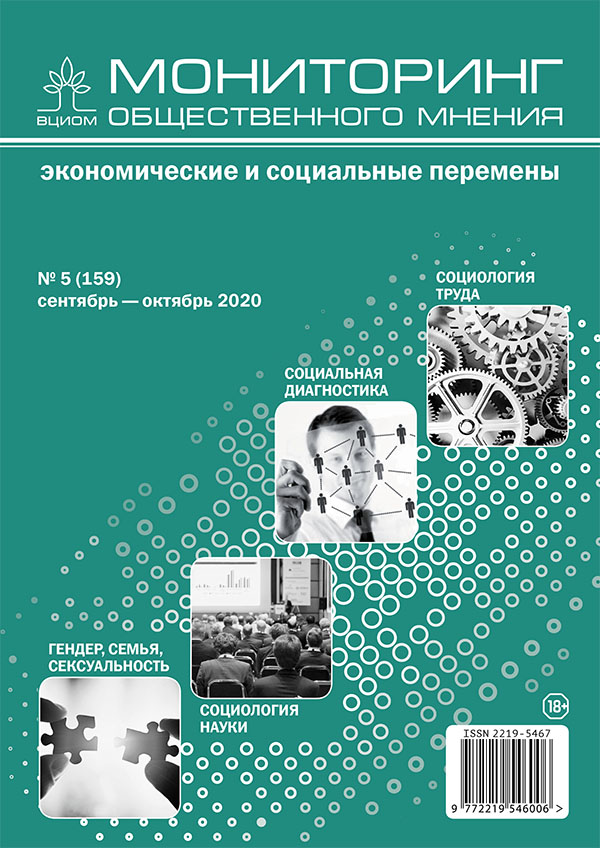Как молодые люди осмысляют вступление в брак? Истории о знакомстве и свадьбе в интервью молодых супругов
DOI:
https://doi.org/10.14515/monitoring.2020.5.1646Ключевые слова:
история знакомства, вступление в брак, супружеские отношения, общение в пареАннотация
В исследованиях молодых семей фокус делается на жизни после свадьбы — развитии отношений супругов, прохождении ими через семейные переходы, преодоление критических точек, освоение новых ролей. При этом в значительной части работ сопоставляются люди, не регистрирующие отношения и выбирающие сожительство, и те, кто вступает в брак; последние при этом рассматриваются как гомогенная группа. Однако также есть исследования, посвященные рассмотрению очень узких вопросов, связанных со вступлением в брак: как именно делается предложение, как супруги участвуют в подготовке к свадьбе, какие ценности и образы семьи транслируются в свадебных пожеланиях. В рамках данной работы предполагается рассматривать вступление в брак как процесс, в ходе которого начинается формирование семейных отношений. На основании анализа глубинных интервью с молодыми супругами (48 интервью, 24 пары, состоящие в зарегистрированном браке не более пяти лет) выделяются этапы вступления в брак, показывается множественность интерпретаций молодоженами каждого из них. В заключительной части работы представлены несколько гипотез о факторах, определяющих структуру брачных историй и их специфику.
Благодарность. Исследование «Как создаются и живут молодые семьи в современной России? Сравнение семей мирян и священников» осуществляется в рамках Программы научных исследований Фонда развития ПСТГУ в 2018-2021 гг.
Загрузки
Опубликован
Как цитировать
Выпуск
Раздел
Лицензия
Copyright (c) 2020 Мониторинг общественного мнения: экономические и социальные перемены

Это произведение доступно по лицензии Creative Commons «Attribution-NonCommercial-ShareAlike» («Атрибуция — Некоммерческое использование — На тех же условиях») 4.0 Всемирная.






